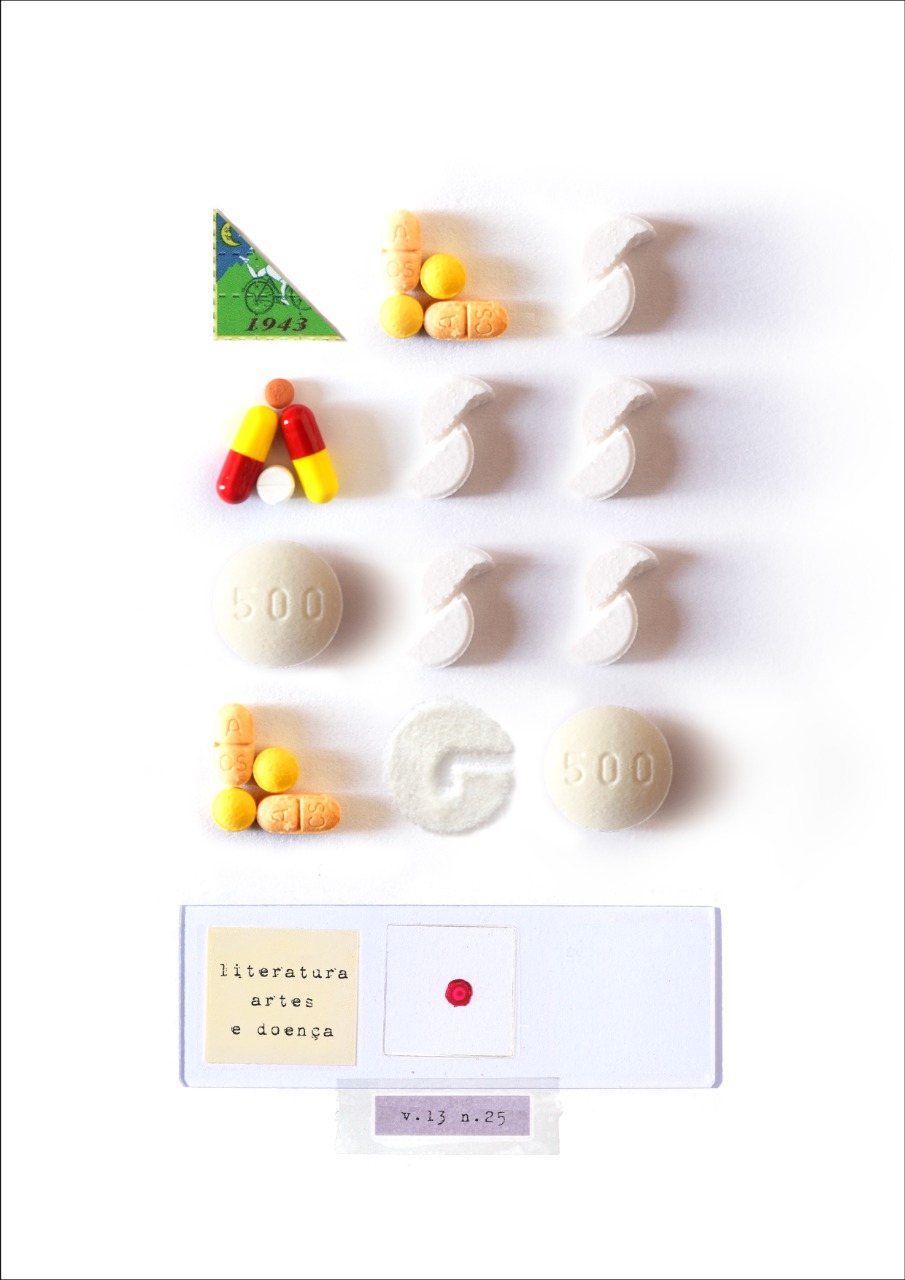Screw loose, stuck screw
DOI:
https://doi.org/10.11606/issn.2175-3180.v13i25p37-50Keywords:
poesia portuguesa moderna e contemporânea, Adília LopesAbstract
Psychological sufferings are recurrent themes in Adília Lopes' poetry, whether in a markedly critical or ironic, if not pure invective, record against psychiatry and psychoanalysis professionals, or in the allusion to psychotropic drugs, their adverse effects on the organism and carelessness with which they are prescribed. Based on the philosophical reflection found in Georges Canguilhem’s The Normal and the Pathological, in which the paradigms that structured medical-scientific knowledge and the notions of health/disease, normality/pathology and anomaly are investigated, concepts that started to form the basis for the multiplication of regulatory devices in all spheres of social life, the multiple meanings of this game involving compliance with the rules and psychic suffering in Adília Lopes' poetics made it necessary to look for a more precise conceptualization of “normality” and “abnormality”.
Downloads
References
AUGÉ, Marc. Não-lugares: Introdução a uma antropologia da supermodernidade. Trad. Maria Lúcia Pereira. Campinas: Papirus, 2016.
CANGUILHEM, Georges. O normal e o patológico. Trad. Maria Thereza R. de Carvalho Barrocas. Rio de Janeiro: Forense Universitária, 2017.
DIOGO, Américo L.; SILVESTRE, Osvaldo M. “Entrevista de Adília Lopes”. Inimigo Rumor Revista de Poesia, Rio de Janeiro, n. 10, p. 18-23, 2001.
LOPES, Adília. “Como se faz um poema?”. Inimigo Rumor Revista de Poesia, Rio de Janeiro, n. 20, p. 109-110, 2008.
LOPES, Adília. Dobra – Poesia Reunida. Porto: Assírio & Alvim, 2014.
LOPES, Adília. Bandolim. Porto: Assírio & Alvim, 2016a.
LOPES, Adília. Z/S. Lisboa: Averno, 2016b.
PESSOTTI, Isaias. Deficiência mental: da superstição à ciência. São Paulo: EDUSP, 1993.
ROUDINESCO, Elizabeth. Por que a psicanálise? Trad. Vera Ribeiro. Rio de Janeiro: Zahar, 2000.
Downloads
Published
Issue
Section
License
Copyright (c) 2021 Lilian Honda

This work is licensed under a Creative Commons Attribution-NonCommercial 4.0 International License.
O(s) autor(es) declara(m) automaticamente ao enviar um texto para publicação na revista Desassossego que o trabalho é de sua(s) autoria(s), assumindo total responsabilidade perante a lei nº 9.610, de 19 de fevereiro de 1998, no caso de plágio ou difamação, obrigando-se a responder pela originalidade do trabalho, inclusive por citações, transcrições, uso de nomes de pessoas e lugares, referências histórias e bibliográficas e tudo o mais que tiver sido incorporado ao seu texto, eximindo, desde já a equipe da Revista, bem como os organismos editoriais a ela vinculados de quaisquer prejuízos ou danos.
O(s) autor(s) permanece(m) sendo o(s) detentor(es) dos direitos autorais de seu(s) texto(s), mas autoriza(m) a equipe da Revista Desassossego a revisar, editar e publicar o texto, podendo esta sugerir alterações sempre que necessário.
O autor(s) declara(m) que sobre o seu texto não recai ônus de qualquer espécie, assim como a inexistência de contratos editoriais vigentes que impeçam sua publicação na Revista Desassossego, responsabilizando-se por reivindicações futuras e eventuais perdas e danos. Os originais enviados devem ser inéditos e não devem ser submetidos à outra(s) revista(s) durante o processo de avaliação.
Em casos de coautoria com respectivos orientadores e outros, faz-se necessária uma declaração do coautor autorizando a publicação do texto.
Entende-se, portanto, com o ato de submissão de qualquer material à Revista Desassossego, a plena concordância com estes termos e com as Normas para elaboração e submissão de trabalhos. O não cumprimento desses itens ou o não enquadramento às normas editoriais resultará na recusa do material.


